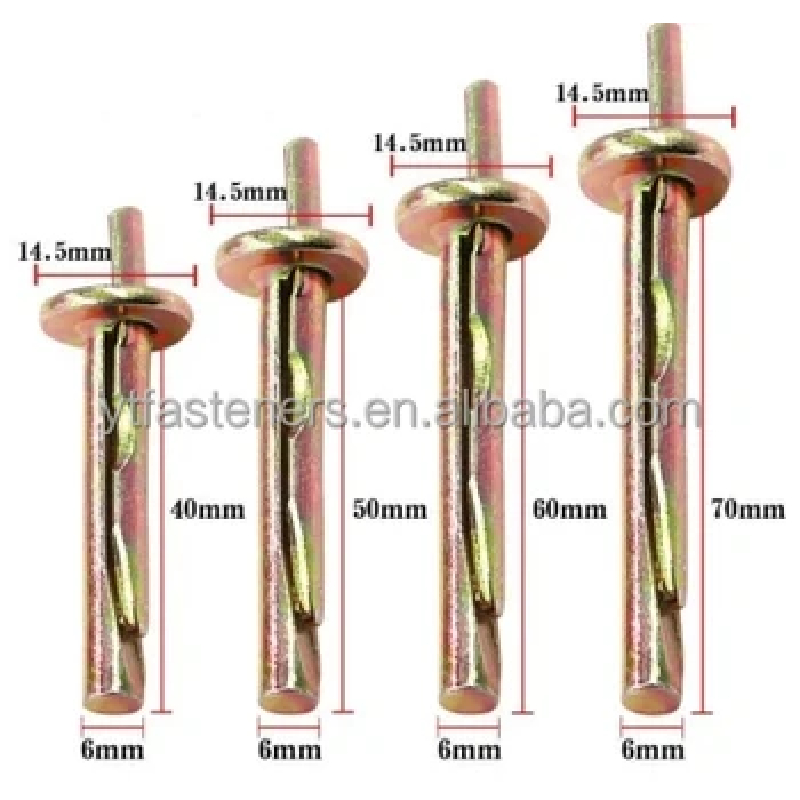Dec . 11, 2024 10:30 Back to list
M12 Standard Washer for Secure and Reliable Fastening Solutions
Understanding M12 Plain Washers Their Importance and Application
In the world of mechanical engineering and construction, small components often play a vital role in ensuring the integrity and longevity of structures and machinery. Among these components, the M12 plain washer is particularly significant. This article delves into the characteristics, functions, and applications of M12 plain washers, highlighting their importance in various domains.
What is an M12 Plain Washer?
An M12 plain washer is a flat disc made from durable materials such as steel, stainless steel, or plastic that has a central hole to accommodate an M12 bolt or screw. The term M12 refers to the metric designation; M is for metric, and 12 indicates the nominal diameter of the bolt in millimeters. Plain washers are typically used in conjunction with nuts and bolts to distribute load, reduce friction, and prevent damage to the surfaces being fastened.
Characteristics of M12 Plain Washers
M12 plain washers come in various sizes and thicknesses, and the choice of material can significantly affect their performance. While steel washers provide strength and durability, stainless steel washers offer corrosion resistance, making them suitable for outdoor and moisture-prone applications. Additionally, plastic washers can be used in situations where electrical insulation is required or where the risk of corrosion is high.
From a dimensional perspective, M12 plain washers typically have an outer diameter of about 24 mm and a thickness ranging from 1 mm to 3 mm, though variations exist. The precise specifications are often dictated by industry standards and can vary based on the application.
Functions of M12 Plain Washers
M12 plain washers serve multiple essential functions
1. Load Distribution One of the primary purposes of a washer is to distribute the load of the bolt or screw over a larger area. This reduces the stress on the material being fastened, particularly useful when dealing with softer materials that may deform under the pressure of a nut or bolt.
2. Friction Reduction Plain washers reduce friction between the bolt head or nut and the surface of the material. This is particularly important during the tightening process, preventing damage or deformation of the material.
m12 plain washer

3. Prevention of Loosening By providing a flat surface and distributing the load, plain washers can help prevent nuts and bolts from loosening due to vibrations, which is crucial in any mechanical assembly subjected to movement.
4. Protection of Surfaces Washers act as a barrier, protecting the surface beneath the bolt or nut from potential scratches and damage.
Applications of M12 Plain Washers
M12 plain washers find applications across various industries, including
- Construction and Structural Engineering They are extensively used in building structures where fastening components together securely is critical. In bolted joints, M12 washers are essential for maintaining structural integrity and safety.
- Automotive Industry In vehicle manufacturing, these washers are used to ensure that components like engine mounts, chassis parts, and suspension systems remain securely fastened, contributing to overall vehicle safety.
- Manufacturing and Machinery In machines and manufacturing systems, M12 washers are essential for assembly processes, minimizing wear and tear on components, and enhancing reliability over time.
- Electronics In electronic devices, where lightweight fastening solutions are often necessary, M12 plain washers are employed to secure components without adding significant weight.
Conclusion
In summary, M12 plain washers are not just simple metal discs; they are crucial components that contribute to the safety, durability, and efficiency of various assemblies. Their ability to distribute pressure, reduce friction, and protect surfaces makes them indispensable in numerous industries. While they may often be overlooked in favor of more prominent components like bolts and nuts, their importance cannot be overstated. Understanding their role can lead to better design practices and improved performance in engineering and construction projects. Whether you are a seasoned engineer or a DIY enthusiast, appreciating the value of these small yet mighty washers can enhance your approach to fastening and assembly tasks. It is clear that even the smallest components can have a significant impact on overall performance and reliability.


